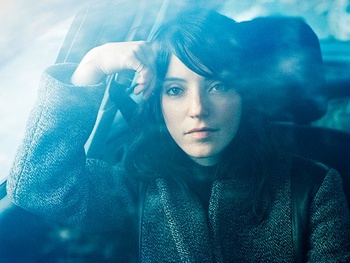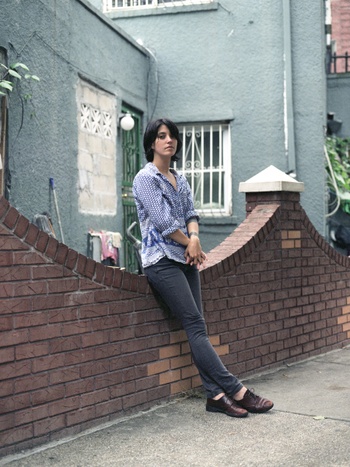For her last album, she called in Aaron Dessner of the National; for the open veins of the break-up album Are We There, however, Sharon Van Etten needed no outside assistance. “I took my training wheels off.”
"Damn, I can’t find it anywhere.” Sharon Van Etten is looking for the photograph of Agnès Varda that hung for years on the wall of her New York apartment, but her smartphone lets her down. It was by chance that the French photographer and film-maker, who helped shape the French New Wave, came into the life of the 33-year-old singer-songwriter with the most heartrending voice in indie rock since PJ Harvey; now Varda is on display in the artwork for Are We There.
“A friend of mine – Rebekah, she is on the album cover, the first picture I took for a photography course – thought I looked like Varda, when I still had that kind of bowl cut. She sent me that photograph, with a letter on the back – we kept each other informed about our personal worries. I didn’t know who that lady was, staring intensely into the mirror, with all those rolls of film at her feet, but the picture, and the letter, meant a lot to me.” As the photograph was threatening to fall apart because of the uncontrollable New York heat, Van Etten asked a friend to scan it for her. He told her who it was of. “Then I started to check out Varda’s work; I went to an exhibition in Paris and saw Cleo from 5 to 7, a sad but at the same time uplifting film.”
A month after seeing that film, she made a video with Michael Palmieri for “A Song for You” and Palmieri, without knowing anything about Van Etten’s love for Varda, wanted to do something along the lines of...Cleo from 5 to 7. “It was like the universe was high-fiving me: it’s knowing that you are doing what you’re supposed to be doing.”


Fijn dat je wil reageren. Wie reageert, gaat akkoord met onze huisregels. Hoe reageren via Disqus? Een woordje uitleg.